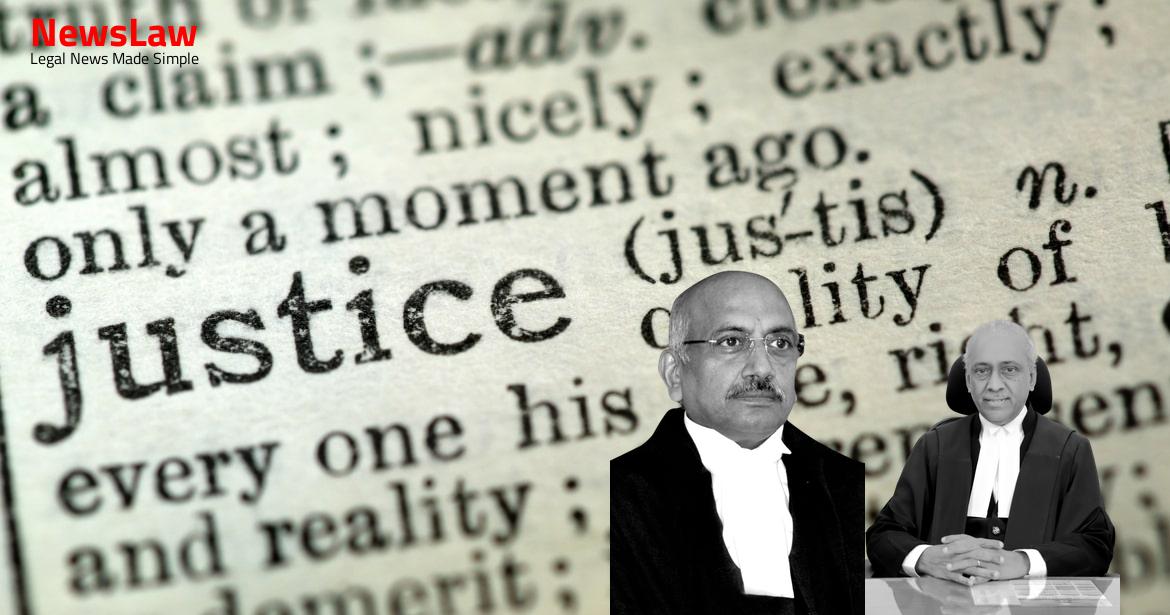The Supreme Court of India’s recent ruling in the case of Om Prakash vs Reliance General Insurance & Anr. elucidates the impact of delayed reporting of vehicle theft to insurance companies. The judgment delves into the nuances of insurance contracts, emphasizing the need for prompt communication in case of criminal acts. This summary evaluates the complexities of the legal interpretation surrounding insurance claims and the obligations of both the insured and insurers.
Facts
- The tractor belonging to the appellant was stolen on 28.10.2010 and an FIR was lodged the same day.
- The tractor was insured with the respondent on 19.06.2010.
- The appellant’s appeal was rejected by the State Commission due to a belated intimation given after 52 days.
- The appellant then filed a complaint with the District Forum, Jalandhar, Punjab.
- The District Forum, following the decisions of the National Commission, allowed the complaint and directed the respondents to pay Rs.4,70,000 as the insured value to the complainant.
- The respondents were given one month to make the payment, and failing to do so would result in them being liable to pay interest at the rate of 12% per annum.
- The National Commission allowed the revision petition based on previous judgment
- Delay in informing the insurance company does not debar the insured from claiming insurance
- The matter was referred to a three-Judge Bench for further review
Also Read: Dr. Kulwant Singh vs. Maternal Grandmother: Custody Dispute Supreme Court Judgment
Analysis
- The Bench observed that in the case of Om Prakash vs Reliance General Insurance & Anr., delay in informing the occurrence of theft to the insurance company resulted in the claimant being disentitled of the insurance claim.
- In contrast, in the case of Oriental Insurance Co. Ltd. vs Parvesh Chander Chadha, the delay in informing the theft to the insurance company did not disentitle the claimant of the insurance claim, as an FIR was promptly registered.
- There is a conflict between the decisions of the two cases on whether delay in informing the theft to the insurance company impacts the claimant’s eligibility for the insurance claim.
- The insurance policy is a contract between the insurer and the insured, and both parties are bound by its terms and conditions.
- Assisting the police in searching for a stolen vehicle is the expected conduct of the insured.
- FIR registration and police reports can substantiate a claim of vehicle theft.
- Interpretation rules include considerations for commercial common sense and surrounding circumstances.
- Courts should be cautious in departing from the natural meaning of a provision.
- The ‘duty to cooperate’ for the insured involves actions that do not prejudice the insurance company.
- Delay in informing the insurer about theft, when already informed to law authorities, usually does not breach the ‘duty to cooperate.’
- Denying a claim solely due to a delay in informing the insurer is viewed as hyper-technical.
- Ambiguity in a contract may lead to the application of contra preferatum to favor the party with lesser bargaining power.
- Delay should not be a blanket reason to repudiate genuine insurance claims.
- Consumer Protection Act aims to protect consumer interests and should be liberally interpreted.
- Court decisions have varied on allowing insurance claims based on delays in informing the insurer about theft.
- Courts aim to give effect to the intended agreement of the parties.
- The judgment analyzes the case in relation to the interpretation of an insurance contract.
- It highlights the importance of immediate notice to the insurer in case of theft or criminal acts subject to a claim.
- The case discusses the consequences of delay in informing the insurer about the theft of a vehicle.
- The judgment reviews the rules of interpretation applicable to insurance contracts, emphasizing the specialized nature of such contracts.
- It considers the implications of delayed claims and the importance of providing satisfactory reasons for the delay.
- The analysis underscores the role of the police in investigating theft and the limited involvement of insurance companies in such cases.
- The judgment debates the meanings of ‘co-operate’ and ‘immediate’ as stated in the insurance policy.
- It warns against rejecting genuine claims on purely technical grounds to maintain policyholder trust in the insurance industry.
- The first part of Condition No 1 requires the insured to immediately give written notice to the insurance company upon the occurrence of any accidental loss or damage.
- The insured must provide all necessary information and assistance as requested by the company in the event of a claim.
- Any letters, claims, writs, summons, or processes received by the insured must be promptly forwarded to the insurance company.
- The insured must also notify the company in writing if they become aware of any impending prosecution, inquest, or fatal inquiry related to an occurrence that may lead to a claim under the policy.
- All actions required under this part are specifically related to incidents of accidents involving the insured vehicle.
- Immediate notice to the company upon an accidental loss allows for the assessment of damages by assigning a surveyor.
- The requirement to forward legal documents to the company implies criminal proceedings related to the accident.
- Written notice of any impending legal action ensures prompt action in the event of an accident.
- The second part of Condition No 1 pertains to theft or criminal acts other than accidents.
- In cases of theft, the insured must immediately inform the police and assist in securing the conviction of the offender.
- Cooperation with the company and providing necessary information and assistance in the event of a claim is also mandated.
- Immediate lodging of FIR after theft is crucial for insurance claim
- Final police report and investigator’s findings play a significant role in determining the genuineness of the claim
- Delay in intimating the insurance company should not be a sole reason to deny the claim if theft is proven genuine
- Precedent from the case of Om Prakash supports the idea that delay in informing the insurer should not nullify a legitimate claim
Also Read: Analyzing the Legal Journey: Jasobanta Sahu vs. State of Orissa – A Landmark Case
Decision
- The impugned Judgment and order dated 17.03.2015 passed by the National Commission is quashed and set aside.
- Remainder of the amount must be paid by the respondents within six weeks from today with an interest rate of 12% per annum.
- The appeal is allowed.
- 75% of the claim amount deposited by the respondents, as per the orders of the Court dated 09.01.2018, can be withdrawn by the appellant with interest accrued.
- The order of the District Forum dated 09.05.2012 upheld by the State Commission on 26.03.2013 is maintained.
Also Read: Analyzing the Acquittal: Suresh @ Unni @ Vadi Suresh vs. The State of Kerala
Case Title: GURSHINDER SINGH Vs. SRIRAM GENERAL INSURANCE CO. LTD. (2020 INSC 84)
Case Number: C.A. No.-000653-000653 / 2020



